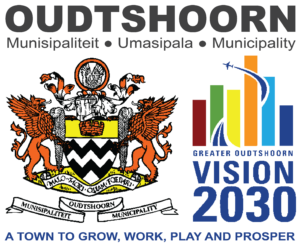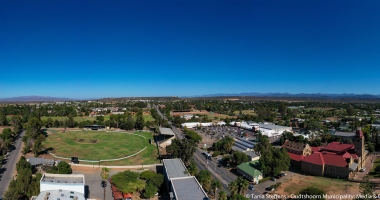
Oudtshoorn, 24 May 2021 – A recent study conducted by Ratings Afrika shows that Oudtshoorn Municipality tops the list of improved Municipalities in the Country on financial sustainability index for the past five years to achieve a score of 48 in 2020 from 17 in 2016.
This is according to the Moneyweb article published last week Thursday, 20 May 2021 on their website, titled “What separates the winners from the losers among municipalities”.
The article published by Moneyweb shows that, Oudtshoorn Municipality scored an average of 37 points out of 100 as most improved municipality between 2016 and 2020, leading 104 largest local municipalities plus eight metros in South Africa. This is according to a data drawn from the Ratings Afrika Municipal Financial Sustainability Index (MFSI).
The executive mayor of the Greater Oudtshoorn expressed gratitude for this success, thanking all the councillors and staff for their efforts in receiving this achievement. He also acknowledged the contribution of the general citizens and stakeholders of the Greater Oudtshoorn. “The tax payers are significant contributors in changing the Municipality from bankruptcy to best improved municipality. It is this joint partnership between the Oudtshoorn Municipality, the citizens and stakeholders that will make Oudtshoorn the best in the Country again,” Macpherson said.
The article Moneyweb published states that, “Moneyweb asked Ratings Afrika to prepare a list of the most improved and most deteriorated municipalities over five years.”
“The MFSI comprises six financial components: operating performance, liquidity management, debt governance, budget practices, affordability, and infrastructure development. Municipalities are scored on a scale of one to 100. The most improved, according to Moneyweb, are Oudtshoorn, Theewaterskloof, Cape Agulhas (all in the Western Cape) and Midvaal (Gauteng).
Oudtshoorn Municipality financial sustainability index is as follows as issued by Ratings Afrika:

Source: Ratings Afrika
“Oudtshoorn demonstrated good improvement in all the components analysed.
The operating loss reduced from R48 million in 2016 to R19 million in 2020. The working capital shortfall of R116 million in 2016 was turned into positive balance of R48 million in 2020. The investment in infrastructure went up from R36 million in 2016 to R70 million in 2020, which will result in better service provision,” reads Moneyweb article.

